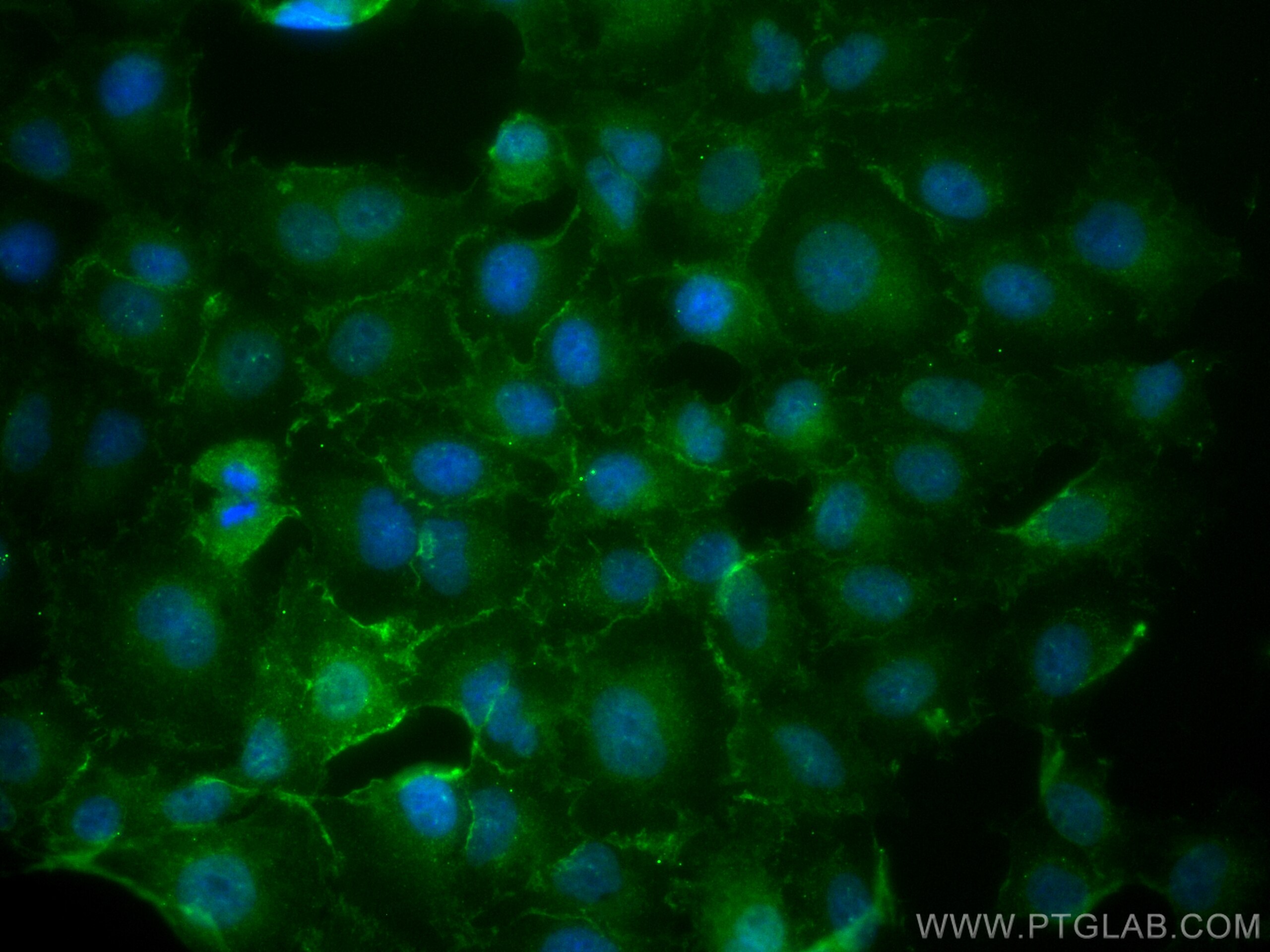Validation Data Gallery
Tested Applications
| Positive IF/ICC detected in | A549 cells |
Recommended dilution
| Application | Dilution |
|---|---|
| Immunofluorescence (IF)/ICC | IF/ICC : 1:50-1:500 |
| It is recommended that this reagent should be titrated in each testing system to obtain optimal results. | |
| Sample-dependent, Check data in validation data gallery. | |
Product Information
CL488-67228 targets MRP1 in IF/ICC applications and shows reactivity with human samples.
| Tested Reactivity | human |
| Host / Isotype | Mouse / IgG1 |
| Class | Monoclonal |
| Type | Antibody |
| Immunogen |
CatNo: Ag27048 Product name: Recombinant human ABCC1 protein Source: e coli.-derived, PGEX-4T Tag: GST Domain: 918-1025 aa of NM_004996 Sequence: SSYSGDISRHHNSTAELQKAEAKKEETWKLMEADKAQTGQVKLSVYWDYMKAIGLFISFLSIFLFMCNHVSALASNYWLSLWTDDPIVNGTQEHTKVRLSVYGALGIS 相同性解析による交差性が予測される生物種 |
| Full Name | ATP-binding cassette, sub-family C (CFTR/MRP), member 1 |
| Calculated molecular weight | 172 kDa |
| Observed molecular weight | 180-190 kDa |
| GenBank accession number | NM_004996 |
| Gene Symbol | MRP1 |
| Gene ID (NCBI) | 4363 |
| RRID | AB_3672942 |
| Conjugate | CoraLite® Plus 488 Fluorescent Dye |
| Excitation/Emission maxima wavelengths | 493 nm / 522 nm |
| 激发激光 | Blue laser (488 nm) |
| Form | |
| Form | Liquid |
| Purification Method | Protein G purification |
| UNIPROT ID | P33527 |
| Storage Buffer | PBS with 50% glycerol, 0.05% Proclin300, 0.5% BSA{{ptg:BufferTemp}}7.3 |
| Storage Conditions | Store at -20°C. Avoid exposure to light. Stable for one year after shipment. Aliquoting is unnecessary for -20oC storage. |
Background Information
Multidrug resistant-associated protein 1 (MRP1; ABCC1) is a member of the ATP-binding cassette (ABC) transporter protein superfamily, subfamily C. MRP1 is overexpressed in cancers and contributes to the occurrence of multidrug resistance (MDR). Expression of MRP1 has been considered as a negative marker for the outcome of chemotherapy. Recently MRP1 has been reported to play a crucial role in Aβ clearance at the blood-brain barrier.
Protocols
| Product Specific Protocols | |
|---|---|
| IF protocol for CL Plus 488 MRP1 antibody CL488-67228 | Download protocol |
| Standard Protocols | |
|---|---|
| Click here to view our Standard Protocols |

